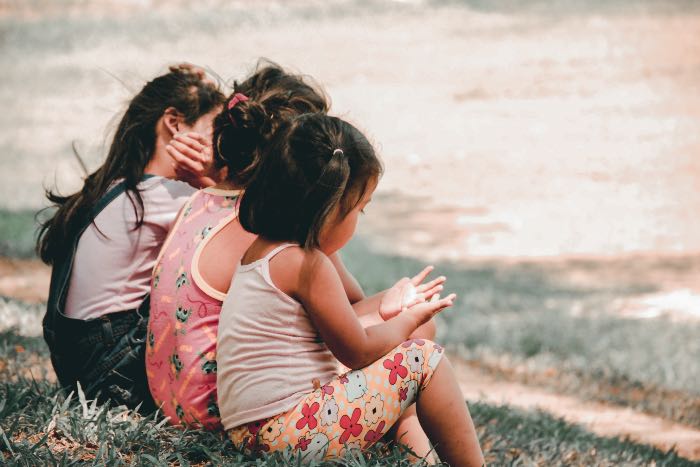
The stats are telling. According to a new Human Rights Watch report:
“Children in the US can be legally married in 41 states, physically punished by school administrators in 47 states, sentenced to life without parole in 22 states, and work in hazardous agriculture conditions in all 50 states.”
In a piece adapted for Slate, Jill Filipovic goes through the wide assortment of issues highlighted by the report. From child marriage to corporal punishment to dangerous labor conditions.
And none of this even includes guns rising to the number one cause of death for children today.
The United States is a dangerous place for children. And importantly, more dangerous for children than for adults.
It is dangerous by choice.
Each of the elements in the report deal with decisions we have made to shape our communities. Decisions which make us outliers internationally.
We allow:
- children to marry,
- corporal punishment in homes and in schools,
- sentence children to life without parole (and try many as adults),
- and let children work in hazardous conditions.
The reason we do this is clear. And dubious.
We choose this.
It isn’t just that we chose this. We are choosing this.
Now, of course we’d rather classify these as “political”. And suggest that these aren’t so much choices as they are allowances. That we simply allow these exceptions.
This is a rhetorical flourish that accounts to making a decision to not make a decision. Which just…sorta…lets things happen. Like we ran out of time to make the decision and OOPS! It just happened. Darn.
This is an abdication of responsibility. And we tolerate it because we want to disavow ourselves from the downstream effects.
For instance, if we say “No, children can’t get married” then a few parents of teens will freak out. They’ll say things. About culture. Tradition. Predictable responses. And that we acknowledge as a direct outcome.
But when child marriage leads to abuse, we consider that an indirect outcome. Not our problem. Even though we know child marriage and abuse is commonly linked. We refuse to allow the knowing decision to count as a consequential decision at all.
This refusal to do the hard thing: saying no to abusive conditions for children: is cast as both a political hardship and yet also a rhetorical insignificance. We consider it extremely hazardous politically and also extremely unhazardous morally.
This is all rhetorical fantasy.
We are choosing to do nothing and allowing children to suffer. And that’s on us.
The politics is as clear as the evidence
Our fear muddies our understanding. And our desire to maintain a consistent view of freedom confounds our thinking.
But it is not nearly as complicated as all of that.
Adults abuse children in ways we’d never let them abuses other adults. And we restrict the rights of kids way more than adults. We subject them to more physical, psychological, and emotional danger than we would allow for ourselves.
We allow this while also claiming a desire to protect children.
It is particularly telling that child safety is at such a low point at the same time the right wing refers to elected Democrats as “pedophiles”: a clear attempt to propagandize us.
And even still, we look the other way!
And we let abuse be seen as mere “culture,” a choice, or some political position we feel obligated to honor, respect, and maintain as legal.
This is a choice. It isn’t an obligation.
The ironic undermining of democracy.
This is the crazy-making rhetorical confusion we presently tolerate:
That we don’t have a choice. In a democracy.
As if we are obligated to tolerate such restriction of freedoms…to avoid restricting the freedom of others.
We’re making the ultimate expression of freedom our public powerlessness. And the ultimate expression of democracy becomes the absence of choice.
We could choose to embody the totalitarianizing of democracy by assuming there’s nothing we can do. Letting the propaganda disempower us and our communities.
We could do that. Live in fear. Hopelessness. Pretend like our common morals only apply in some conditions and not others. Tolerating an upside down freedom that feels like a prison. That is a choice we could make.
Or we can choose to make a better world. One in which we choose to protect our children from the abuse they actually receive: beatings from husbands, parents, and school principals.
We can choose to say that 13 year-old girls shouldn’t be marrying 50 year-old men. Parents shouldn’t use belts as weapons. And seven year-olds shouldn’t be working full-time on farms. It’s 2023—these are kids being exploited by adults.
And we can prevent that abuse with laws that actually reflect our values of justice and equal rights.
